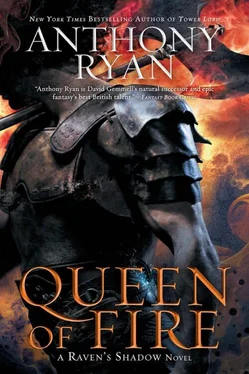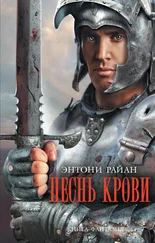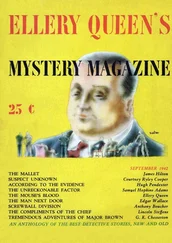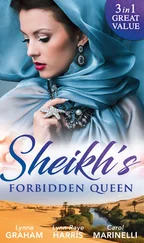It is a singular mistake to think of the slave as fully human. Freedom is a privilege afforded by the excellence of our lineage as true Volarian citizens. By contrast the slaveʼs station, earned through birth to enslaved parents, just defeat in war or a demonstrated lack of industry and intelligence, is not merely the artificial construct of society, it is the accurate reflection of a natural order. It therefore follows that attempts to upset this order, through misguided policy or even outright rebellion, are always doomed to failure.
— COUNCIL-MAN LORVEK IRLAV, VOLARIA: THE APEX OF CIVILISATION, GREAT LIBRARY OF THE UNIFIED REALM (LIBRARIANʼS NOTE: TEXT INCOMPLETE DUE TO PARTIAL BURNING)

In contrast to my first voyage aboard this ship I found myself provided with a cabin, once occupied by the first mate who had perished at the Battle of the Teeth. Our captain stated loudly to his threadbare crew that he had yet to find a worthy replacement and I might as well have it since none of these dogs deserved the honour. The welcoming prospect of ship-borne comfort, however, was diminished by his insistence that I share the space with my former owner.
“Sheʼs your prisoner, scribe,” he stated. “You guard her.”
“To what end?” I enquired, gesturing at the surrounding ocean. “To where is she likely to escape, pray tell?”
“Might damage the ship,” he replied with a shrug. “Might throw herself to a passing shark. Either way, sheʼs your responsibility and Iʼve no hands spare to watch her.”
“Itʼs a small bed,” she observed as the cabin door slammed shut behind us. “Still, I donʼt mind sharing.”
I pointed to a corner of the cabin. “Your place is there, mistress. If youʼre quiet, I might spare you a blanket.”
“Or what?” she asked, pointedly sitting on the narrow bunk. “Will you flog me? Bend me to your will with cruel torment?”
She smiled and I turned away, going to a small map table set into the woodwork below the porthole. “There are a dozen men on this ship who will happily mete out all the correction you require,” I said, reaching into my bag and extracting the first scroll to hand.
“Iʼve no doubt,” she agreed. “Will you watch? My dear husband liked to watch when the slave girls were whipped. Heʼd often pleasure himself at the sight. Will you do the same, my lord?”
I sighed, biting down a response and unfurling the scroll. An Illustrated Catalogue of Volarian Ceramics , Brother Harlickʼs precise but overly florid letters provoking me to an amused grunt. Even the manʼs script is pompous. Although I couldnʼt pretend any liking for the brother, I had to concede Harlickʼs draughtsmanship was excellent, the illustrations possessed of a flawless exactitude, the first depicting a hunting scene from a vase dating back some fifteen hundred years, naked spearmen pursuing a stag through pine forest.
“Ceramics,” Fornella said, peering over my shoulder. “You think the Allyʼs origins lurk in pots, my lord?”
I didnʼt look up from the scroll. “When studying an age often bereft of writing, decorative illustration can be highly informative. If you can enlighten me as to another course, I would be grateful.”
“How grateful?” she asked, leaning close, breath soft on my ear.
I merely shook my head and returned to the scroll as she laughed and moved away. “You really have no interest in women at all, do you?”
“My interest in women varies according to the woman in question.” I unfurled the scroll further, finding more hunting scenes, some images of ritual worship, various gods, and creatures of bizarre design.
“I can help,” she said. “I… would like to.”
I turned, finding her expression cautious but earnest. “Why?”
“We have a long voyage ahead. And whatever you may suspect of my motives, I am keen to see this mission succeed.”
I looked again at the image on the scroll, naked revellers frolicking before a great ape-like creature, mouth agape and vomiting fire. Kethian jug fragment, read the inscription below the image. Pre-Imperial.
“When exactly,” I asked her, “did the Volarians give up their gods?”
• • •
“It was all long before my birth,” she said, “long before my motherʼs birth in fact. But she was ever a studious woman and keen for me to learn the history of our most glorious empire.”
We had repaired to the deck, sitting near the prow as she spoke and I scribbled my notes. The captain had growled something at our appearance but made no protest and the crew seemed happy to ignore us, bar a few hostile glances at Fornella.
“The empire may speak with one tongue now,” she went on, “and follow the Councilʼs edicts be they denizens of the greatest city or the foulest swamp. But it was not always so.”
“I know your empire was forged in war,” I said. “Many wars in fact, lasting some three centuries.”
“Quite so, but whilst the Forging Age left us with an empire, true unity eluded us for centuries to come. There were too many different coins with too many different values. Too many languages spoken by too many tongues. And far too many gods. My mother used to say that men would fight and kill for money, but they would only die for their gods. For the empire to endure we required that kind of loyalty, untainted by any divine distraction. And so there were more wars, called the Wars of Persecution by some, but Imperial historians refer to the entire period as the Great Cleansing, a sixty-year trial of blood and torture. Whole provinces were laid waste and entire peoples took flight, some to the northern hills, others across the sea to found new nations free of Volarian persecution. But, for all we lost, it was this that truly birthed the empire, for this is when we became a nation of slavers.
“There had always been slaves, of course, mostly in the Volarian heartland, but now there were more, conquered for refusing to give up their gods, beaten, cowed and bred so successive generations forgot them altogether. To marshal such a resource requires two things: great organisation and vast cruelty. I often think it was these particular traits the Ally found so alluring. After all, we must have been chosen for a reason.”
“Do you know when he made himself known?”
“I know not whether the Ally is male, or even truly human. My mother told of a time, near four centuriesʼ years ago, when the empire was strong in its unity. War with the Alpirans was nothing new but it took on a new intensity, the battles grew in size, the campaigns lasted years instead of months, though victory still eluded us. Eventually the Alpirans became tired of our endless attacks and launched one of their own, overrunning the southern provinces in a matter of months. Crisis has a tendency to reveal noteworthy talent and thus it was that a young general from the southern city of Mirtesk rose to prominence, a general with a revolutionary notion, and the means to make it happen. If our slaves could build our cities and work our fields, why not also fight our wars? And so, via his new-found knowledge, we created the Varitai and Kuritai. Through tactical genius and prodigious use of his slave soldiers, our new general won eternal fame by driving the Alpirans back. He was lauded the length and breadth of the empire, statues were raised in his honour, epics composed by our finest scholars to document his wondrous life.”
Читать дальше













